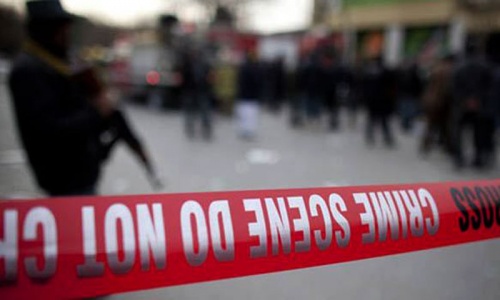KABUL: Afghanistan’s government, increasingly at odds with Washington, is cracking down on advertisements that promote keeping US troops in the country after 2014 and has already shut down a spot aired by the country's most widely watched broadcasters.
The commercials – some funded by a US organisation – have drawn official criticism because they urge President Hamid Karzai to abandon his refusal to sign a security pact with the United States that would enable the troops to stay.
Broadcasters, which ran the spots for several weeks, came under investigation on grounds that their source of funding was unclear. All have pulled the advertisements off the air.
“We have launched an investigation into broadcasters to find out where they receive money from for such advertisements,” Basir Azizi, a spokesman for the attorney general, told Reuters on Wednesday.
Despite Karzai's refusal to sign the Bilateral Security Agreement (BSA) unless several conditions were met, many Afghans are uncertain the army is able to fend off Taliban insurgents without help from the Nato-led ISAF coalition of troops.
The commercials often include interviews with rank-and-file Afghans calling on Karzai to sign the accord immediately.
In one spot, the head of a cultural association tells the president: “You should accept the people’s demand and sign this as soon as possible.”
The crackdown is the latest symptom of Karzai's hostility to Washington. Last week, he cited a deadly attack on a restaurant to accuse the United States of doing too little to fight terrorism.
Afghanistan’s media watchdog said pressure on broadcasters was hurting attempts to establish the industry's independence.
“Such actions by the government are a clear attempt to limit freedom of speech and put at risk advances in the media industry,” Mujib Khelwatgar, Director General of NAI media watchdog, told Reuters.
Government figures show that more than 50 private television stations, 150 radio broadcasters and about 1,000 newspapers have sprung up since the fall of the Taliban regime in 2001.
Broadcasters were aware the spots were funded by ISAF or related groups, but saw “public service” advertising as a source of revenue.
Afghanistan's most popular channel, Tolo TV, said the spots were provided by a company called Ads Village, whose officials acknowledge the funds came from ISAF or US state aid agency USAID.
“All adverts are treated with similar terms and conditions, whether it is on BSA or a brand of mineral water,” Massood Sanjar, Tolo TV's channel manager, told Reuters.
The station, he said, was paid $700-$1,000 a minute to air the spots several times over a 24 hour period.
The ISAF declined to indicate how much it spends on advertising, saying: “Public information released... is intended to inform and educate the public on the mission and operations of ISAF and our Afghan National Security Forces partners.”















































